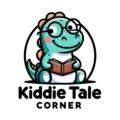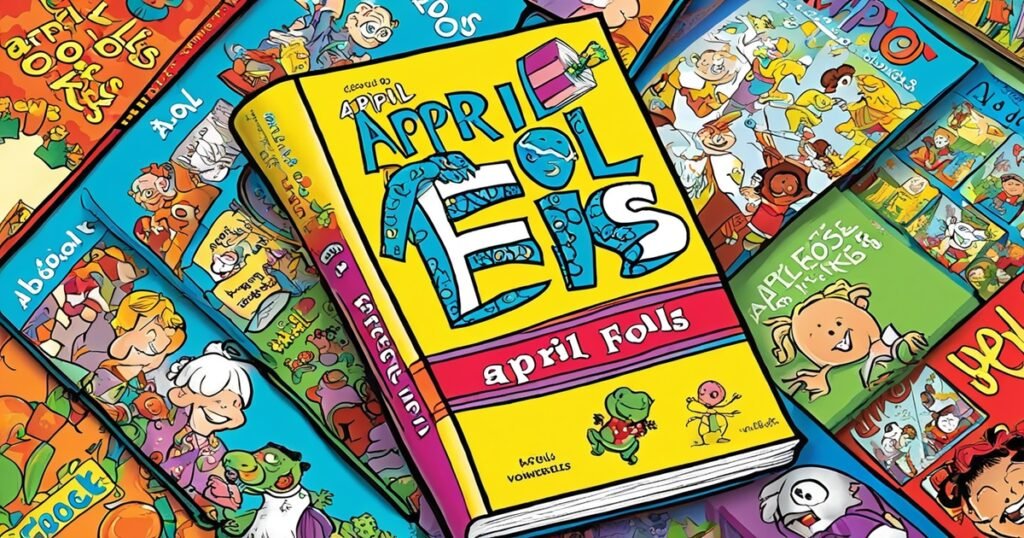The quest for the right educational materials is a critical undertaking, especially when selecting 7th grade curriculum books. This particular academic stage is pivotal as students transition from elementary to more advanced studies in high school. Hence, sourcing essential 7th grade textbooks is indispensable for educators aiming to provide a robust learning foundation. Amid the shifts caused by COVID-19, today’s learning landscape demands a dynamic approach where educators are equipped with the best resources to meet complex educational needs.
While many 7th grade textbooks are available, discerning which ones offer comprehensive content that caters to the diverse requirements of young learners is essential. In addition to core academic topics, these books should foster skill development vital for students’ future success. Thus, educators are tasked with the responsibility of shaping not just intellects but futures, as they choose textbooks that will forge a path of knowledge and growth for their students.
Table of Contents
- Key Takeaways
- The Importance of Selecting Quality 7th Grade Curriculum Books
- Understanding the 7th Grade Learning Environment
- Evaluating Popular 7th Grade Curriculum
- 7th Grade Educational Materials and Their Impact on Students
- Diverse Genres in 7th Grade Study Materials
- Building a Reading List: Best 7th Grade Books
- Incorporating Essential 7th Grade Textbooks into Curriculum Planning
- 7th Grade Curriculum Books and Resource Accessibility
- How Comprehensive 7th Grade Learning Resources Can Aid Educators
- Collaborative Teaching Aids in 7th Grade Curriculum Books
- 7th Grade Curriculum Books: Supporting Educator Professional Development
- Recommended 7th Grade Curriculum
- Conclusion
- Source Links
Key Takeaways
- Selecting appropriate 7th grade curriculum books is vital for bridging the educational gap and ensuring student success.
- Quality 7th grade textbooks must be adaptable to both traditional and modern educational challenges propelled by unforeseen circumstances like the pandemic.
- It’s crucial to include essential 7th grade textbooks that address the developmental and cognitive evolution of 7th graders.
- Effective curriculum books should enrich the complex identities of 7th grade students and enhance their problem-solving abilities.
- Curriculum books play a central role in preparing 7th grade students for high school and beyond.
The Importance of Selecting Quality 7th Grade Curriculum Books
As students embark on the transformative journey of 7th grade, educators hold the key to unlocking their potential through the careful selection of curriculum books for 7th grade. This academic year is considered a bridge—connecting the foundational knowledge of early learning with the complex concepts introduced in high school. Therefore, selecting the recommended 7th grade curriculum is more than a mere educational mandate; it is a shaping influence on the lives of young learners.
The 7th grade educational materials should be a tapestry of knowledge that nurtures the intellect and supports the emotional and social blossoming of students. During this impactful time, the use of thoughtfully chosen textbooks can significantly affect students’ ability to process new ideas, understand their evolving world, and develop the autonomy necessary for their future academic and personal achievements.
The Transitional Phase of 7th Grade
The 7th grade is an era of metamorphosis where students tread the line between youthful curiosity and the onset of mature thought processes. It’s a period fraught with changes that are not only hormonal but also intellectual. 7th grade curriculum books, therefore, must serve as robust vessels of exploration and discovery, guiding students through this labyrinth of growth. They must be adequately diversified to touch upon the array of subjects that will form the core of later learning while remaining sensitive to the personal development of the students.
Critical Skills Development at This Stage
Amidst the swirl of change, 7th grade educational materials should foster the development of critical skills such as analytical thinking, problem-solving, and independent learning. It is within the pages of quality curriculum books that students learn how to question, debate, and synthesize new information—a foundation that will support their journey towards becoming well-informed and responsible adults. For educators, the duty lies not only in imparting knowledge but also in selecting resources that will cultivate a resilient and innovative mindset necessary for tackling the multidisciplinary challenges of today’s world.
In the selection of recommended 7th grade curriculum, educators must strive for excellence, balancing the rigidity of academic standards with the flexibility required to address the individuality of student needs. The right curriculum books can transform an ordinary classroom into a dynamic learning environment where all students can thrive and prepare to navigate the more rigorous demands of high school and beyond.
Understanding the 7th Grade Learning Environment
The pivotal seventh-grade year is a fusion of transformative thinking and emotional evolution. It marks an enlightening period in the educational journey, where early adolescence meets the precipice of more structured, in-depth academia. Navigating this junction requires a strategic approach to 7th grade learning resources, with educators keenly aware of the delicate balance between nurturing the emergent individuality of students and the need to sharpen their academic edge. The role of well-chosen curriculum books becomes ever so critical, as these resources hold the potential to either ignite or dampen the innate curiosity of young minds.
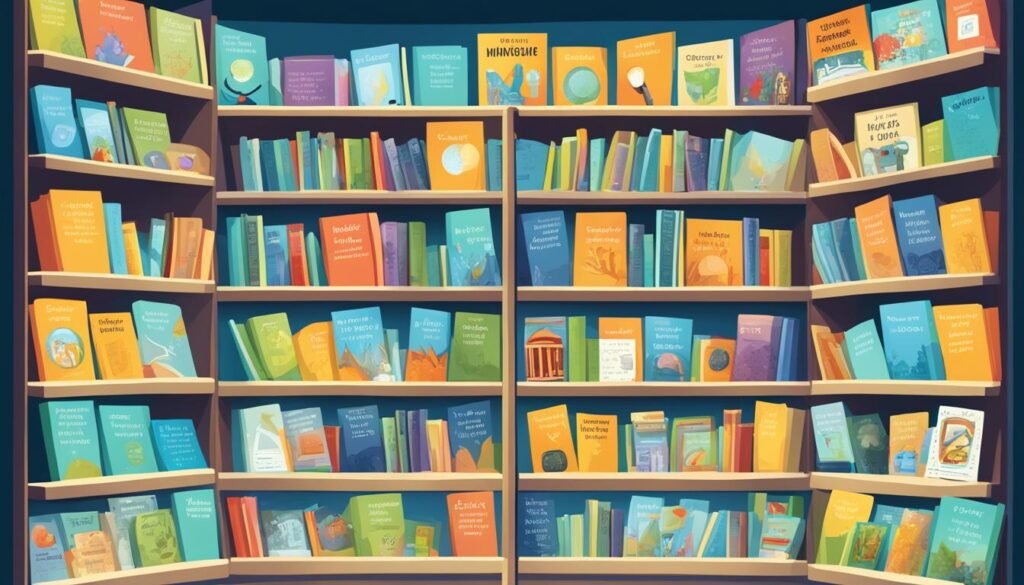
For this quiz of life where the questions keep changing, best 7th grade books frequently serve as a compass, guiding learners through subjects thick with data and concepts blooming with creativity. What constitutes the academic ‘best’ is often a mix of relevance, quality content and an engaging presentation, tailored to resonate with a generation navigating the waters of self-discovery and social connectivity. The books that typically strike a chord are those that encapsulate varied perspectives, stimulate critical thinking and, most importantly, are adaptable to the heterogeneous learning styles prevalent in a 7th-grade classroom.
- Science textbooks that extrapolate everyday phenomena into intricate laws of nature.
- Literature anthologies that traverse through time, introducing students to characters and narratives that mirror their own search for identity.
- Mathematical workbooks that turn numeric mastery into puzzles and adventures.
In essence, the 7th-grade milieu is derivative of the resources it hosts, each book, each lesson a building block in the scaffold of adolescence. The spectrum of 7th graders’ abilities and interests demands a curriculum that’s as diverse as the students themselves—one that encompasses not just information but inspiration.
It is not only about the books they read; it’s about the chapters they inspire in their own life stories.
The table below pinpoints the attributes of 7th-grade books that directly contribute to creating an enriching learning environment which fosters the growth of well-rounded individuals.
| Book Characteristic | Impact on Learning Environment |
|---|---|
| Interdisciplinary Content | Promotes the integration of knowledge across subjects, encouraging holistic understanding. |
| Diverse Narratives | Cultivates empathy and broadens worldviews, forging connections with the material on a personal level. |
| Interactive Features | Engages students actively, catering to a hands-on learning experience and reinforcing retention. |
| Critical Thinking Prompts | Encourages analytical skills and independent problem-solving, vital for future academic success. |
| Current and Relatable Topics | Makes learning more applicable to present-day scenarios, heightening interest and relevancy. |
With the appropriate tools in hand, educators have the power to transform any learning space into a vibrant trove of knowledge and imagination, attuned to the heartbeat of the 7th-grade learner. It is not just an understanding but a convergence of elements within the 7th-grade learning environment that paves the road to wisdom.
Evaluating Popular 7th Grade Curriculum
When education transcends traditional boundaries and embraces the fluid dynamics of various learning environments, the evaluation of popular 7th grade curriculum becomes crucial. The ideal curriculum books should not only cover a broad spectrum of subjects but also adapt to the versatile educational needs of 7th graders, whether they find themselves in the structured setting of a classroom or the flexible space of online schooling.
Adapting to Varied Educational Needs
As educators delve into the rich tapestry of 7th grade curricula, the ability of these resources to meet the varied educational needs of students stands paramount. A curriculum that cannot flex to accommodate the diverse learning styles and intellectual curiosities of its student body fails to optimize its educational potential. The 7th grade study materials therefore must be crafted meticulously, with educators evaluating how these resources contribute to the growth and engagement of young minds in today’s multifaceted educational climate.
Incorporating Technology and Traditional Methods
In a landscape increasingly dominated by digital interfaces, the role of technology in education continues to expand. However, the incorporation of technology into 7th grade study materials should complement rather than replace traditional teaching methodologies. Balancing print textbooks with interactive digital platforms can lead to a holistic learning experience that cements fundamental concepts even as it encourages students to explore and innovate.
7th grade educational materials that successfully combine the tactile appeal of printed books with the accessibility and interactive engagement of digital content are ideal. This seamless blend extends learning beyond the boundaries of the classroom, permitting students to delve deeper into their studies at their own rhythm while providing educators with diverse approaches to teaching.
| Curriculum Component | Benefit to Educational Need |
|---|---|
| Engaging, Multimedia Content | Meets diverse learning styles with dynamic and interactive resources. |
| Collaborative Online Platforms | Facilitates peer-to-peer learning and broadens social learning opportunities. |
| Print-Based Reference Materials | Offers reliable and thorough examination of core subjects for deep study. |
| Adaptive Learning Technologies | Personalizes educational content to match individual student progress. |
| Instructional E-Books | Provides flexibility with materials accessible from multiple devices. |
7th Grade Educational Materials and Their Impact on Students
The interplay between 7th grade educational materials and a student’s development is multifaceted. During these formative middle school years, the cognitive and emotional domains of growth are notably influenced by essential 7th grade textbooks and resources that are part of their daily learning. Engaging and well-structured textbooks can be instrumental in catalyzing critical thought, fostering resilience in problem-solving, and nurturing a burgeoning sense of self amongst students.
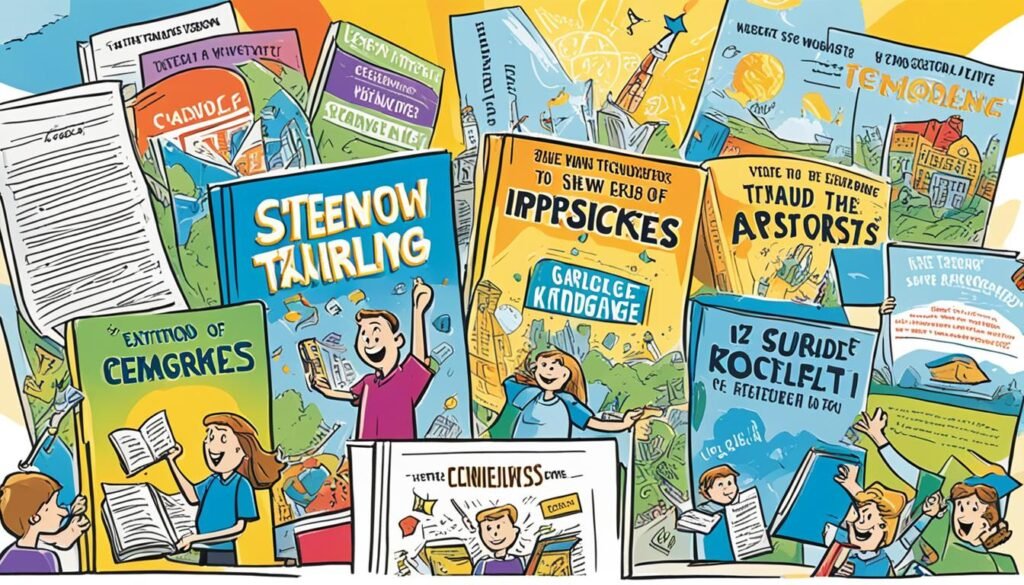
For many students, seventh grade represents a definitive shift towards more complex and abstract forms of reasoning. It is essential for 7th grade textbooks to deliver content that not only satisfies academic requirements but also cultivates independent thinking and learning. The goal is to provide students with the tools and opportunities to develop these skills through exploration, inquiry, and reflection facilitated by their curriculum.
Encouraging Critical Thinking and Problem Solving
Curriculum designers and educators continually emphasize the importance of critical thinking and problem-solving skills in 7th grade textbooks. Lessons that challenge students’ understanding and push them to apply their knowledge in novel situations are crucial. When educational materials incorporate complex scenarios requiring analysis, evaluation, and synthesis, students are more likely to embrace and develop critical thinking competencies that are indispensable in later life stages.
Developing a Sense of Self and Independence
The educational resources provided during this stage play a pivotal role in shaping a young individual’s sense of self. The narratives, activities, and learning paradigms embedded within essential 7th grade textbooks can act as mirrors for students, reflecting their own personal experiences and aspirations. This reflection enables students to carve out a space for personal growth and identity formation, which in turn, fosters a sense of independence in their approach to learning and life.
| Resource Type | Encourages Critical Thinking | Supports Independence and Self-Discovery |
|---|---|---|
| Engaging Fiction and Non-fiction Texts | Stimulates creative and analytical skills through diverse perspectives and problem-solving narratives. | Offers insights into various cultures and viewpoints, guiding students toward self-awareness. |
| Math and Science Problem Sets | Develops logical reasoning and quantitative analysis through real-world applications. | Strengthens self-efficacy as students independently navigate complex mathematical concepts. |
| Interactive Digital Media | Provides dynamic platforms for inquiry-based learning and collaborative problem-solving. | Empowers student choice in learning paths, promoting autonomy in educational pursuits. |
| Historical Case Studies | Builds capacity to critically assess historical events and their relevance to modern issues. | Encourages exploring personal connections to history, enhancing cultural understanding and identity. |
Diverse Genres in 7th Grade Study Materials
The literary landscape for 7th grade curriculum books mirrors a broad palette of genres, each captivating different strands of a young learner’s imagination and intellect. To entice the evolving interests of seventh graders, it is imperative that educators incorporate a medley of 7th grade curriculum books that span across multiple genres. These genres offer unique ways to understand the world, establish cultural empathy, and develop critical thinking skills crucial during this formative period in education.
Providing a variety of genres in 7th grade study materials opens doors to diverse literary experiences that resonate with students’ burgeoning identities. From the intrigue of science fiction that stretches the outer limits of what is possible, to the resonant narratives found in realistic fiction that reflect students’ own experiences—each genre serves a pivotal role in broadening students’ horizons.
| Genre | Benefits to 7th Grade Learners |
|---|---|
| Science Fiction | Stimulates imagination and scientific curiosity, introducing complex scientific concepts. |
| Historical Fiction | Provides contextual learning of history, encouraging empathy and understanding. |
| Fantasy | Enhances creative thinking and problem-solving with complex, otherworldly scenarios. |
| Mystery | Develops critical thinking skills through plot analysis and clue deciphering. |
| Biographies | Offers real-life stories of perseverance and achievement, which can inspire and educate. |
Integrating a mix of 7th grade curriculum books catering to various interests not only sustains engagement but also aligns with the cognitive development characteristic of middle school pupils. Engaged students are often more motivated to learn and explore, leading to a richer educational experience. As they navigate through these different genres, seventh graders begin to develop a deeper appreciation for literature and its power to convey diverse perspectives and complex ideas.
Through the pages of a novel, a young reader can travel to distant lands, unearth the past, and imagine the future, thus transforming the act of reading into a journey of boundless discovery.
Building a Reading List: Best 7th Grade Books
Assembling an eclectic reading list is key to expanding the horizons of 7th grade students. The goal is to weave together a tapestry of 7th grade study materials that not only entertain but also inform and engage inquisitive young minds. In the quest for the best 7th grade books, educators venture beyond the conventional, blending genres from science fiction to historical narratives – each offering unique avenues for learning and personal growth.
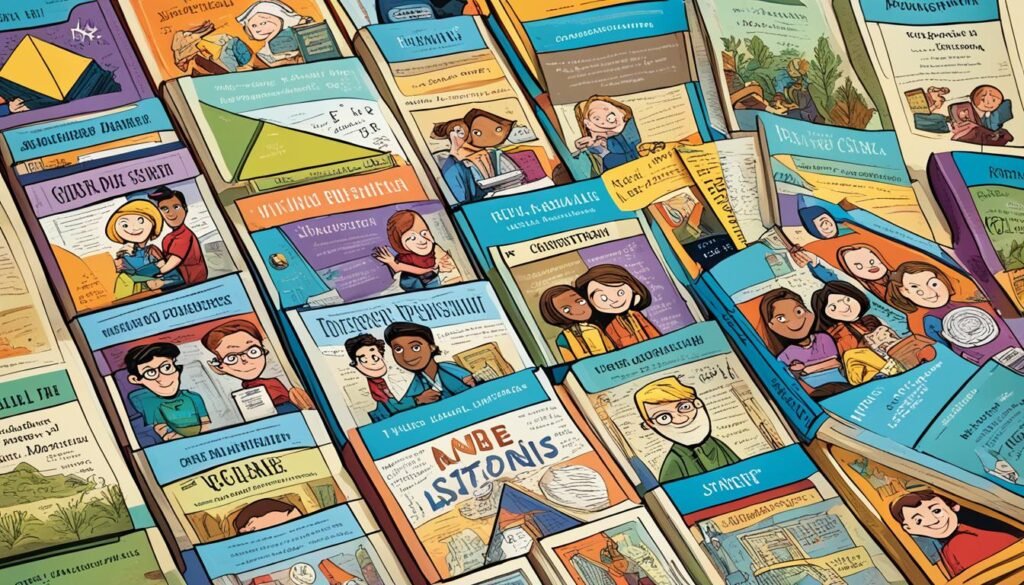
From Science Fiction to Historical Narratives
The variety of books in a 7th grader’s reading list can transport students through time, thrust them into alternative realities, and broaden their understanding of complex ideas. Science fiction, for instance, transcends the mundane to spark deep inquiry into scientific and ethical questions. Historical narratives, on the other hand, serve as portals to the past, providing intimate encounters with epochs and cultures far removed from students’ lived experiences. Such literature not only enriches their knowledge but also strengthens their cognitive skills.
Fostering Empathy and Understanding through Literature
The transformative power of literature in developing empathy and human understanding cannot be overstated. A narrative’s ability to place students in the shoes of diverse characters is invaluable, as it cultivates a deeper, more empathetic comprehension of the myriad life stories that exist beyond their own. It’s these very experiences, facilitated by well-chosen books, that arm students with critical thinking capabilities and an empathetic worldview — essential tools for their journey ahead.
Incorporating Essential 7th Grade Textbooks into Curriculum Planning
When charting out the educational journey for seventh graders, integrating essential 7th grade textbooks into curriculum planning is a key consideration for educators. These textbooks are meticulously selected to address a wide array of learning objectives that align with both state and national educational standards. The content within these resources effectively combines age-appropriate language with rigorous academic concepts, ensuring students are equipped with the necessary tools to succeed in their subsequent educational pursuits.
The inclusion of popular 7th grade curriculum books is strategic, designed to meet varied learning styles and educational needs of 7th graders. By understanding the critical role these textbooks play, educators are better positioned to tailor instructional strategies that accommodate the developmental milestones typical of this transitional phase in education. As a result, these textbooks serve not only as a source of knowledge and skills development but also as catalysts for inspiring young minds.
- Textbooks that parallel state and national standards help ensure students receive a uniform and thorough education, laying the groundwork for high school readiness.
- Books selected must foster both academic growth and personal development, reflecting the changing interests and cognitive abilities of 7th graders.
- Material should be presented in an engaging manner, capturing the students’ attention and endorsing an inquiry-based approach to learning.
Effective curriculum planning also emphasizes the diversity of subjects covered by essential 7th grade textbooks. From the complexities of pre-algebra to the nuances of early American history, each subject demands a unique set of textbooks that are comprehensive yet comprehensible. Educators must undertake the significant task of evaluating and choosing texts that resonate with current educational trends while remaining mindful of the learning outcomes expected of their students.
At the heart of curriculum planning is the knowledge that textbooks serve as cornerstones in the edifice of lifelong learning. The right 7th grade textbooks are not mere vessels of information, but beacons guiding students to the shores of academic excellence and critical thought.
7th Grade Curriculum Books and Resource Accessibility
In the realm of education, particularly at the middle school level, the accessibility of 7th grade learning resources is pivotal. Ensuring that these materials are readily available to all students regardless of economic or geographical limitations is a matter of equity. Essential 7th grade textbooks should be within reach for every student to guarantee an equal opportunity to learn, grow, and succeed in the academically critical year of 7th grade.
Due to disparities in funding and resource allocation, some schools may struggle to provide the necessary curriculum books for their students. This gap in accessibility can have long-term effects on the educational outcomes of 7th graders. Considering this challenge, the education system must strive to implement strategies that make these crucial learning materials available to all educators and students.

The impact of accessible 7th grade learning resources cannot be overstated. When students have the tools they require, the playing field is leveled, and the focus shifts from the struggle to obtain resources to the utilization of these tools in pursuit of academic excellence.
| Resource Type | Accessibility Concern | Proposed Solution |
|---|---|---|
| Print Textbooks | Limited quantities, expensive for some districts | Invest in shared resources, utilize second-hand books effectively |
| Digital Content | Internet connectivity and device availability | Provide grants for technological infrastructure improvement |
| Library Access | Remote locations, lack of transportation | Establish mobile and community libraries; incentivize inter-school sharing |
It is not solely the responsibility of schools to ensure the reach of essential 7th grade textbooks; it also rests upon policymakers, educational non-profits, and community stakeholders to collaborate in creating solutions that bridge these gaps. Whether through innovative lending programs, investments in digital technologies, or policy reform geared toward better funding models, the goal remains steadfast—to arm every 7th grade educator with the resources necessary to foster a rich learning environment.
Ensuring the accessibility of 7th grade study materials is an essential step in cultivating a generation of well-rounded, knowledgeable individuals. These efforts will not only benefit the current class of students but will set a precedent for equitable education standards for years to come.
How Comprehensive 7th Grade Learning Resources Can Aid Educators
In today’s educational climate, the significance of comprehensive 7th grade learning resources for educators cannot be overstated. With the advent of blended learning models and an increased emphasis on personalized education, these resources are becoming indispensable tools within academic settings. They provide educators with innovative strategies to reach each student effectively, acknowledging the diverse learning styles present in a typical 7th grade classroom.
The integration of 7th grade educational materials that encompass a breadth of formats and modalities allows for a richer, more tactile learning experience. This multidimensional approach caters to the varying needs of students, fostering an environment where all learners can engage with the curriculum in a meaningful way.
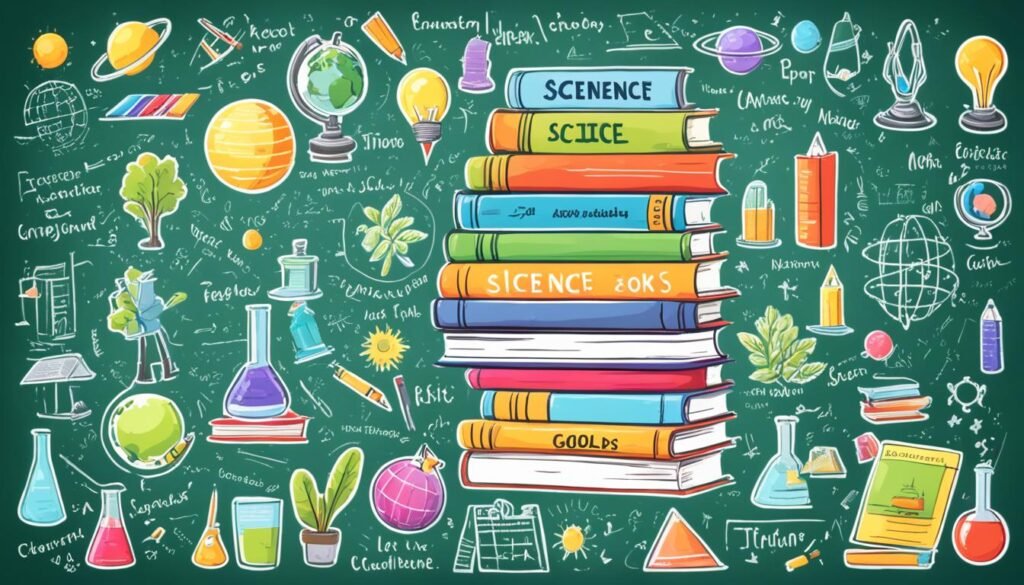
Resources for Blended Learning Strategies
Blended learning strategies are at the forefront of modern education, combining the best of face-to-face instruction with the flexibility of online learning. A comprehensive suite of resources is essential to implement this effectively. For instance, well-structured lesson plans designed for both in-person and virtual environments ensure continuity and coherence in teaching. Additionally, digital platforms provide interactive lessons that can be tailored to individual student needs, allowing for differentiation and remediation wherever necessary.
These blended learning strategies, supported by dynamic 7th grade learning resources, empower educators to deliver curriculum objectives in a way that is both innovative and responsive to contemporary educational demands. This harmony between traditional teaching and emergent technological tools is the cornerstone of a robust 7th-grade education.
Supplemental Materials to Enhance Teaching
An array of supplemental materials often accompanies comprehensive 7th grade learning resources, further enriching the educator’s toolkit. Supplementary items such as online access codes, interactive simulations, and multimedia presentations complement core curriculum content, providing a depth of understanding and fostering engagement.
These materials, ranging from problem-solving exercises to virtual lab experiments, extend learning beyond the textbook. They spark curiosity and drive home complex concepts through application and visualization. Such resources not merely bolster pedagogical efforts but also inspire innovation within the educational arena, ensuring that the delivery of content is as diverse and captivating as the subject matter itself.
The depth and variety of 7th grade educational materials pave the way for educators to craft a pedagogy that is not only informed but also genuinely transformative.
Collaborative Teaching Aids in 7th Grade Curriculum Books
In the realm of education, particularly for 7th graders, collaborative teaching aids have become a cornerstone in 7th grade study materials. These didactic tools are designed to engender interactive learning among students, breaking away from traditional methods of teaching to usher in a dynamic and inclusive educational experience. Collaborative 7th grade textbooks play an integral role in this modern approach, facilitating engagement and collective problem-solving.

These textbooks incorporate features that stimulate vital group dynamics within the classroom, laying the groundwork for a shared intellectual journey. Through structured group discussions, case-based learning, and peer assessments, students harness the power of collaborative learning. This practice not only sharpens the intellect but fosters social skills, preparing students to navigate future academically collaborative and team-based environments successfully.
Engaging collaboratively in the classroom sets the stage for young minds to recognize the strength in diversity and the power of combined effort.
An illustrative example of this is reflected in the following table, which highlights the types of collaborative activities often found within these progressive educational texts:
| Collaborative Activity | Purpose | Skills Developed |
|---|---|---|
| Group Projects | To integrate different ideas and perspectives towards a common goal | Teamwork, Leadership, Delegation |
| Peer Review Sessions | To develop critical feedback skills and enhance content comprehension | Critical Thinking, Constructive Criticism, Communication |
| Role-playing Exercises | To explore real-world scenarios and alternative outcomes | Creativity, Empathy, Problem-solving |
| Debate and Discussion Groups | To marshal arguments and understand contrasting viewpoints | Argumentation, Active Listening, Persuasion |
| Collaborative Writing Tasks | To merge individual contributions into cohesive work | Cooperation, Writing Skills, Time Management |
The advantages of utilizing collaborative 7th grade textbooks are manifold—their inherent design intended to not only disseminate knowledge but to interlace the individual learning experiences in such a way that the result is greater than the sum of its parts. Educators are encouraged to leverage these 7th grade study materials to build a classroom atmosphere where knowledge is not just acquired but collectively constructed.
Conclusively, the emphasis on collaboration within 7th grade curriculum books reflects a larger educational paradigm shift. Educators who adopt these materials are fostering a generation of learners who are not just informed but are adept at the interpersonal skills necessary for success in an increasingly interconnected world.
7th Grade Curriculum Books: Supporting Educator Professional Development
The advancement of education is a collaborative effort, involving not only the absorption of knowledge by students but also the continuous professional development of educators. Specifically, 7th grade curriculum books serve as critical aids in this endeavor, providing teachers with innovative teaching strategies reinforced by the latest research. These resources are designed to hone the pedagogical skills necessary to navigate the complexities inherent in educating this unique age group.
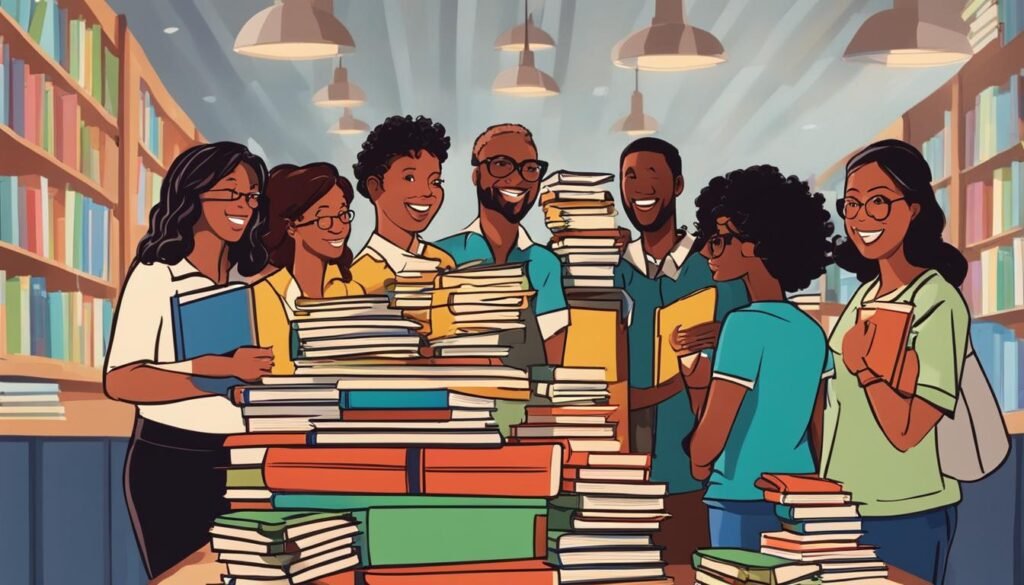
Up-to-Date Educational Trends and Research
Staying abreast of the latest educational trends and research is a primary concern for any dedicated educator. Curriculum books tailored for the 7th grade are instrumental in this pursuit, as they encapsulate current pedagogical approaches and the evolving educational paradigms that characterize modern classrooms. By leveraging these resources, teachers can apply contemporary theories and methodologies to enhance their instructional practices, ultimately benefiting their students’ learning outcomes.
Professional Learning Community Contributions
Professional learning communities (PLCs) play a pivotal role in the professional development of educators. These networks encourage the sharing of best practices, collaborative learning, and the refinement of instruction techniques among peers. By integrating insights from 7th grade curriculum books with the collective wisdom found within these communities, educators can spearhead innovative learning experiences and foster environments that galvanize student engagement and achievement.
Effective educators are lifelong learners, constantly seeking new knowledge and understanding to inspire their students. 7th grade curriculum books are passports to this unending journey of professional growth.
Recommended 7th Grade Curriculum
When guiding students through the formative period of the 7th grade, a recommended 7th grade curriculum plays a pivotal role in educational development. Educators are tasked with the mission of selecting high-quality curricular resources that meet a broad spectrum of learner needs. These materials are the foundation for educational growth, setting students on a path toward academic success and personal discovery.
Integrating Curricula for a Holistic Educational Approach
A holistic approach to education goes beyond textbook knowledge, integrating various elements that contribute to a student’s overall development. The popular 7th grade curriculum encourages exploration across disciplines, fostering a connectedness that resonates with the intuitive learning styles of young adolescents. This multifaceted approach is essential for navigating the complex cognitive and emotional growth happening at this stage.
Books and Materials with Proven Success in Classrooms
Achieving a successful educational outcome hinges on the use of 7th grade textbooks and materials that have demonstrated success in real-world classroom settings. These resources have been field-tested to ensure they engage students effectively and meet educators’ high standards. With an emphasis on reliability and evidence-based strategies, these curricular choices can significantly uplift the teaching and learning experience.
The table below demonstrates a few examples of literature acclaimed within educational circles, typically recommended for seventh graders:
| Title | Author | Genre | Educational Value |
|---|---|---|---|
| “The Giver” | Lois Lowry | Dystopian Fiction | Encourages ethical reasoning and societal analysis |
| “Number the Stars” | Lois Lowry | Historical Fiction | Provides cultural perspective and historical context |
| “Hoot” | Carl Hiaasen | Realistic Fiction | Discusses environmental activism and personal initiative |
| “Wonder” | R.J. Palacio | Realistic Fiction | Teaches empathy, tolerance, and personal courage |
These selected works are part of a recommended 7th grade curriculum collection not just for their engaging narratives but also for their potential to ignite discussions on core values and worldviews, which are an integral part of this educational stage.
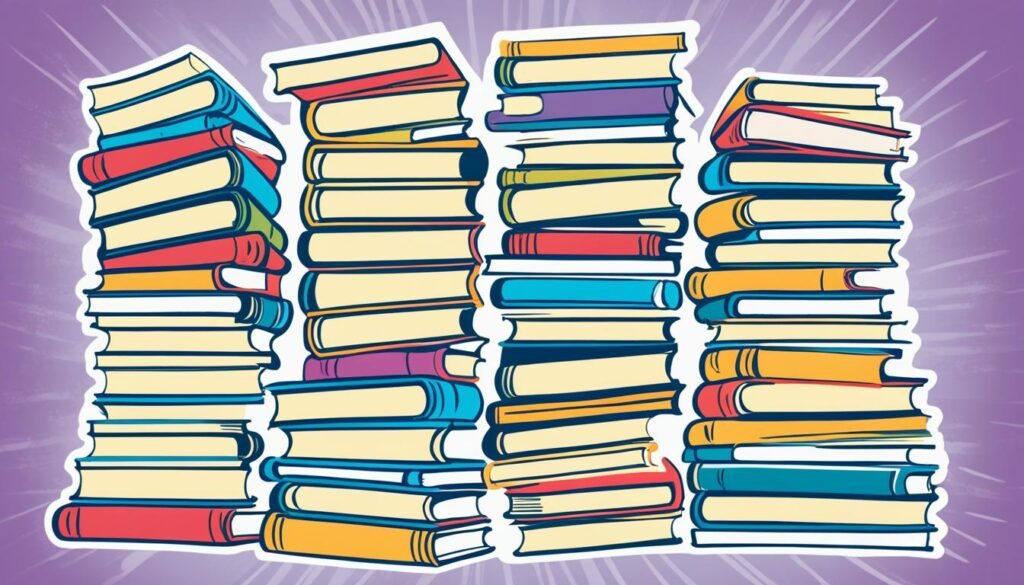
Thus, the right combination of tested and impactful educational resources complements the traditional teaching methods and meets the modern standards of a comprehensive educational framework—the hallmark of an effective 7th grade curriculum.
Conclusion
The journey through 7th grade is a critical period in a student’s educational path, one that is intricately woven with challenges, discoveries, and a quest for self-identity. The role of 7th grade curriculum books in this process is undeniably pivotal, as they lay the groundwork for future academic endeavors while simultaneously catering to the multifaceted needs of a young learner’s development. It is within these pages that students find the nexus between knowledge and application, theory and practice, fostering a level of preparedness that extends well into high school and their later years.
An emphasis on a diverse array of essential 7th grade textbooks signifies a commitment to providing a holistic educational experience. These texts are not just tools but are the very fabric that can inspire, educate, and mold a student’s world view. The conscientious selection of comprehensive 7th grade learning resources by educators, therefore, is much more than an academic obligation; it is an investment in the cognitive and emotional capital of our future generations.
As we look towards cultivating capable, well-rounded citizens, we must continue to prioritize the curation of 7th grade curriculum books that reflect the innovative spirit of our times, and that speak to the curious and dynamic nature of 7th graders. By doing so, educators are not only transmission belts of information but also architects of empowering educational landscapes that encourage engagement, foster critical thinking, and ignite the sparks of lifelong learning.
FAQ
What makes 7th grade a transitional phase for students?
The 7th grade marks a pivotal point in a child’s education where they are developing critical skills and transitioning from elementary to high school levels. It is a time when students are starting to explore a greater sense of self and think critically about their futures, making it essential to have curriculum books that cater to their expanding cognitive abilities and emotional growth.
Why is there an emphasis on selecting quality curriculum books for 7th grade?
Quality curriculum books for 7th grade are important because they foster skill development crucial to students’ growth, including critical thinking, problem-solving, and self-confidence. They help bridge the educational gap between the foundational years and the more rigorous demands of high school, setting the stage for future academic success.
How can curriculum books adapt to the varied educational needs of 7th graders?
To adapt to varied educational needs, curriculum books must offer flexibility to be used in both traditional classroom settings and online schooling, incorporating technology alongside traditional teaching methods. This allows educators to tailor instruction to different learning styles and needs.
Why is it essential to incorporate technology in 7th grade curriculum books?
Incorporating technology in 7th grade curriculum books is essential because it allows for the integration of digital tools that can enhance learning experiences. Technology provides dynamic, interactive, and personalized learning opportunities which are crucial in today’s education landscape.
How do 7th grade educational materials impact students’ development of independence?
Educational materials for 7th graders are designed to encourage independence by providing content that is challenging yet age-appropriate. These materials promote self-study, critical thinking, and self-assessment, which are necessary for students to become self-sufficient learners.
What role do diverse genres play in 7th grade curriculum books?
Diverse genres in curriculum books enrich students’ learning by exposing them to a wide range of literary and academic content. This exposure not only maintains engagement but also broadens students’ understanding of various subjects, cultures, and historical periods, contributing to a more well-rounded education.
How should a reading list for 7th grade be built to foster empathy and understanding?
A reading list for 7th grade should include a variety of genres, such as science fiction, realistic narratives, and historical fiction, to appeal to different interests. Books that challenge students intellectually and provide insight into different perspectives foster empathy and a deeper understanding of the world.
What factors should be considered when integrating essential 7th grade textbooks into curriculum planning?
When integrating essential textbooks into curriculum planning, educators should consider age-appropriate comprehension levels, alignment with educational standards, and the overall skills and knowledge that 7th graders are expected to acquire. It’s crucial to select materials that support the school’s learning objectives and the students’ developmental needs.
Why is accessibility important for 7th grade curriculum books and resources?
Accessibility is key in ensuring that all students, regardless of economic background or learning environment, have equal opportunities to benefit from quality educational materials. Accessible resources play a vital role in providing a comprehensive education and leveling the playing field for all students.
What supplemental materials can enhance 7th grade teaching and how do they support educators?
Supplemental materials such as online access codes, interactive exercises, and multimedia content support educators by providing additional resources to reinforce and extend learning. These materials help implement blended learning strategies that can cater to individual student needs and preferences, enhancing the overall educational experience.
How do collaborative teaching aids in 7th grade curriculum books enhance student learning?
Collaborative teaching aids facilitate interactive learning, encouraging students to work together, engage in discussions, and explore different viewpoints. This not only enriches the learning experience but also helps develop essential social skills and prepares students for team-based environments in the future.
In what ways do 7th grade curriculum books support educator professional development?
Curriculum books assist educator professional development by providing up-to-date research, trends, and effective teaching strategies. Through professional learning communities, educators can share best practices and continuously improve their instructional techniques, staying informed and adept in their teaching practices.
What should be considered when recommending a 7th grade curriculum?
When recommending a 7th grade curriculum, consider integration of holistic educational approaches, the curriculum’s alignment with educational standards, and its proven success in classroom settings. It’s important to choose resources which have a positive impact on student engagement and learning outcomes.
